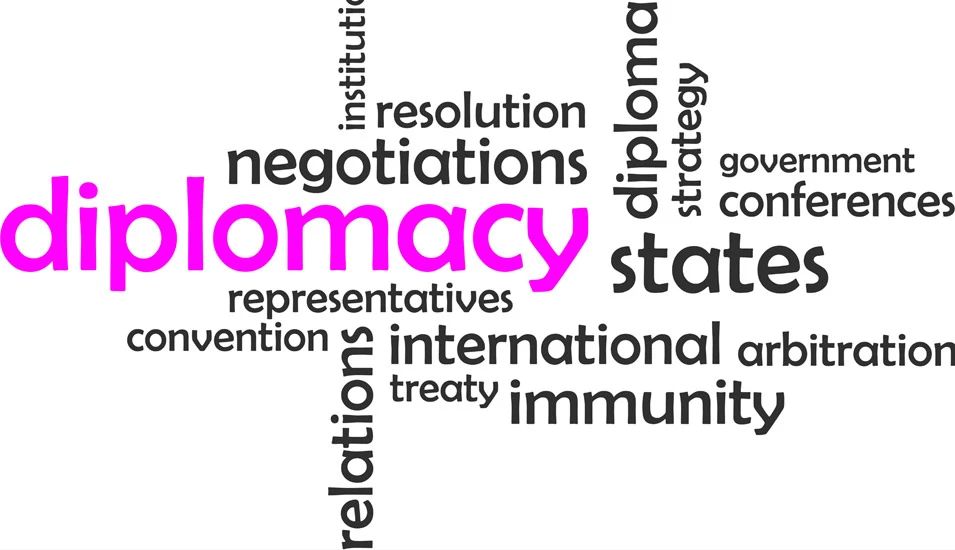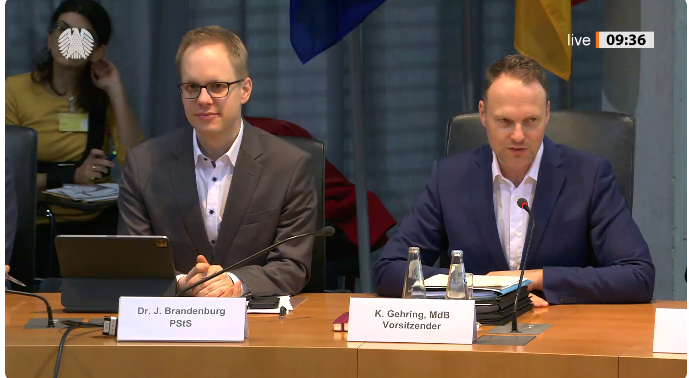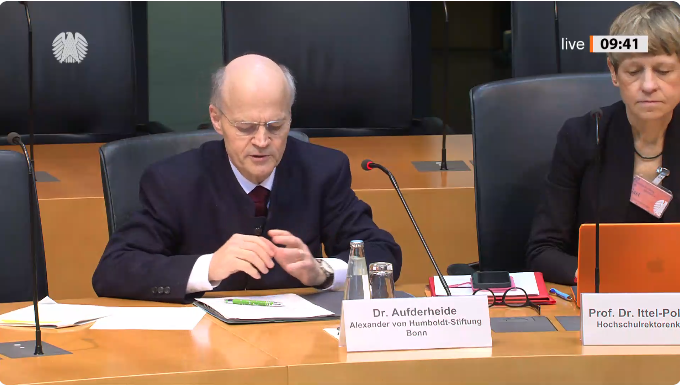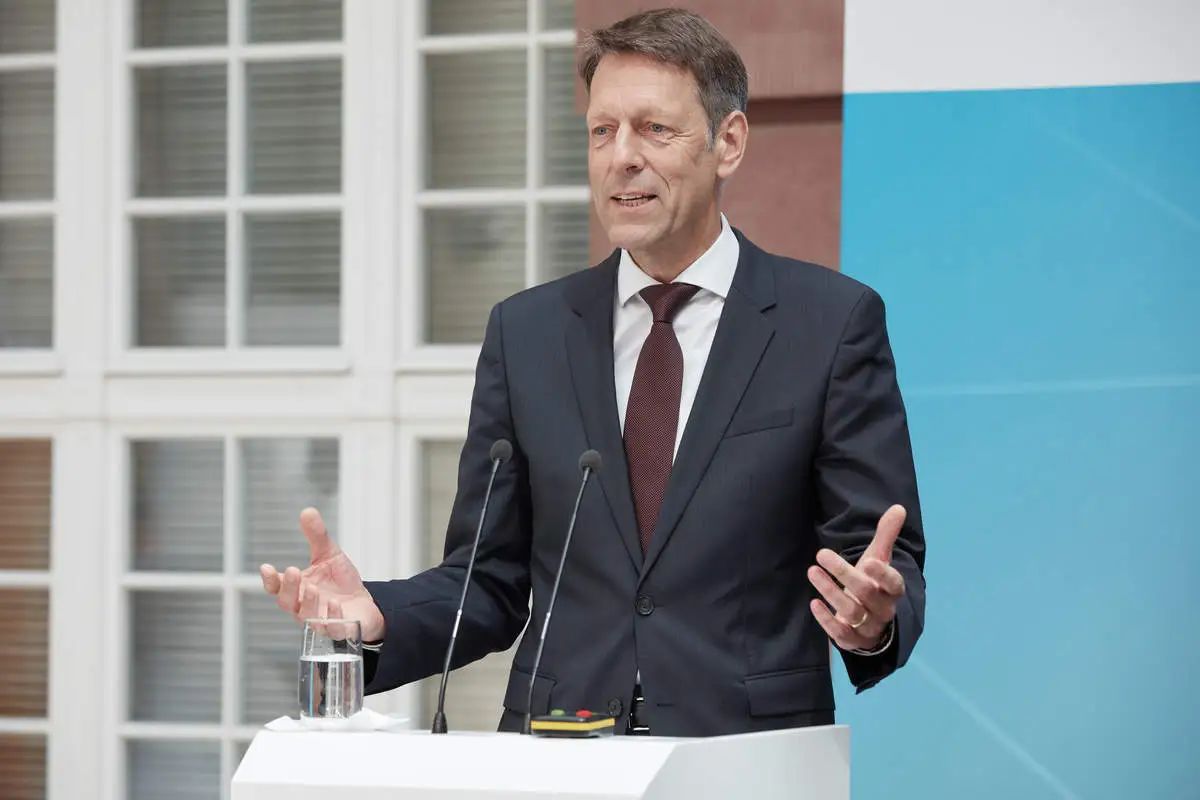-
News & Events

A year’s plan starts with spring. At the beginning of each year, it is time for the government and various agencies to set the relevant plans and goals for the year. In the realm of German scientific research, relevant conferences were conducted recently to discuss potential developments and associated arrangements in the coming year.
At the 64th meeting of the German Education Council held on Feb.21st in the German Bundestag, science diplomacy policy was at the forefront. Members of parliament (MPs) are reportedly upset that the Federal Foreign Minister-Annalena Berbock only pays attention to climate foreign policy, but not to long-term, institutionalized scientific cooperation.
What’s more, the previous research policies against China have also been criticized by MPs again. They particularly complained about the restrictive approach by the University of Erlangen-Nuremberg (FAU) on Chinese CSC students in 2023. After a heated discussion among MPs, several positive signals were clearly shown.
01
Germany will pursue an active science diplomacy policy
During the second basic motion of this conference, the research parliamentarians pointed out to the Bundestag the objectives of the coalition agreement, emphasizing their commitment to an active science diplomacy policy and the importance of academic freedom and its protection. Germany should defend and advocate for technological and digital sovereignty based on its interests.

To strengthen academic freedom and resilience, collaboration in scientific research should be more closely aligned with human rights, academic self-determination, democracy, and future "German strategic interests". According to the agenda of the Committee meeting, the applicants also called for deeper European cooperation in the field of scientific research.

Science diplomacy should be used to consolidate its position, overcome global challenges, and maintain diplomatic relations in the context of development and cooperation. There are 26 specific requirements in the application, which can be divided into the following three categories:
First, promote academic mobility;
Second, strengthen academic freedom and resiliency;
Third, enhance cooperation with Europe and the world in scientific research.
Among these proposals, it was specifically noted that more cooperation with China in the field of scientific research should be strengthened, especially in high-tech areas such as aeronautics, materials, digitalization, and artificial intelligence (AI).
02
Key experts in Germany emphasize cooperation with China
The politicians of the Research Council invited experts from various scientific institutions to attend the meeting, including those from Charité -Universitätsmedizin Berlin, German Rector’s Conference (HRK), the Alexander von Humboldt Foundation (AvH), Universities of Erlangen – Nuremberg (FAU) and Heidelberg University as well as the German Academic Exchange Service (DAAD).

Secretary General Kay Sickles noted that DAAD had put forward proposals for the establishment of science diplomacy policy in 2021 and 2022. “We see these policy recommendations as a stimulus for the further development of German science diplomacy. Among these policies, DAAD places a high value on expanding scientific research collaboration with China, strengthening protections for students and researchers, and deepening cooperation between European universities. Given the current global situation, it is vital to re-design the foreign scientific relations.” Sickles said, according to Table Media.
Cooperation with China is now the most important topic in the German scientific research community and a brand-new theme in today's social context.
03
Germany will offer more opportunities for doctoral researches
Georg Schütte, Secretary General of the Volkswagen Foundation, spoke on the topic at the Munich Security Conference (MSC). Schütte believes that scientific knowledge is more than ever the key to the development of relations between states and nations. It has also changed the landscape of international scientific cooperation.
In an interview with Table Media, Schütte said, "We see that we must continue to promote international cooperation. Global challenges underscore the need for cooperation, but we also need to see that there are economic struggles for technological knowledge, which leads to competition."

He believes that cooperation is necessary in the long run. To maintain the ability to act internationally, it is critical to focus on new paths.
Schütte suggested that it is becoming increasingly important to articulate the scientific strategic interests of science more clearly as well as to make the German science system financially fit for the future. He also argues that those involved need to ask themselves: who are we working with? Where are the boundaries of academic freedom? In this regard, Hütter reportedly applauded the latest DAAD proposal, which calls for pragmatic cooperation with China.
Meanwhile, financial support is indispensable for scientific research. In the future, more opportunities for financial support and doctoral position will also be available to Chinese doctoral candidates.
